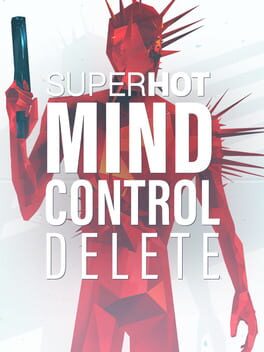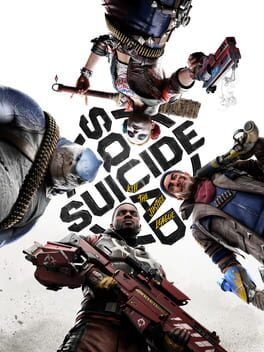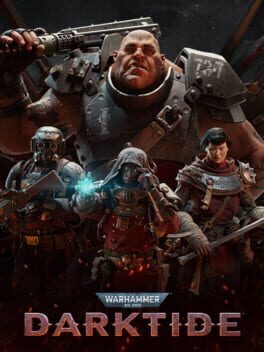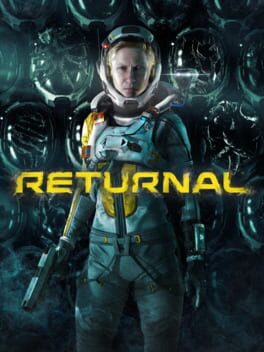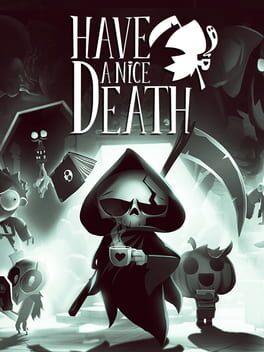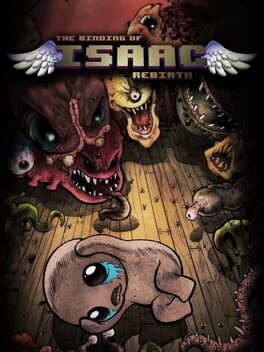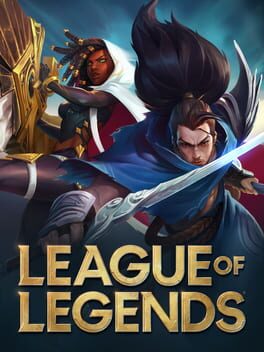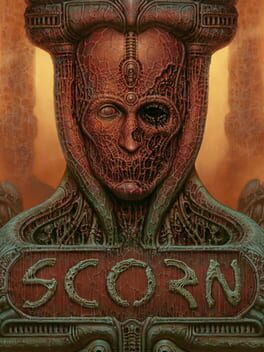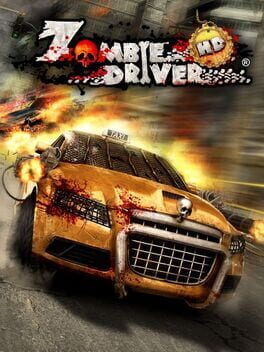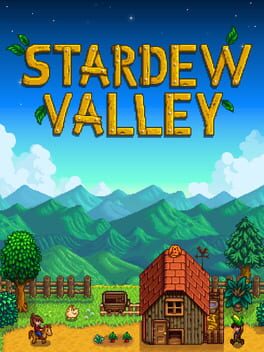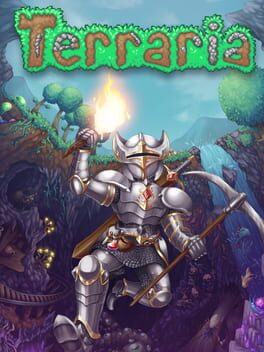Tenebras
12 reviews liked by Tenebras
I think at this point I have played every level at least a few times. This was an excellent Left 4 Dead-esque title. I’ve had lots of fun playing with friends. The combat is visceral and meaty. The higher difficulties are a great challenge as well.
This will likely be a game I come back to every now and then.
This will likely be a game I come back to every now and then.
Returnal
2021
Data File-
//defragmented
[#FORCED START OVERRIDE - - LOG OPENED]
BROADCAST: DSE Backloggd - - RA 18h 06m 0s | Feb 20th 2023
====================
XENOGLYPH I
- - - - - - - - - - - - - - - - - - -
Writings by “BeachEpisode”
- - - - - - - - - - - - - - - - - - -
[Translation Accuracy: 86%]
- - - - - - - - - - - - - - - - - - -
“Never should have smoked that ҂ѼҎ҉֎ (excrement? physic?), now I’m in the Abyssal Scar.
I must admit to having been left gobsmacked and dumbfounded by how much Returnal has left such a strong impact on me. I don’t have much history with Housemarque’s library of games, despite Super Stardust HD being such a near-permanent fixture on my PS3 that it could have passed for my TV’s screensaver. Outland is relatively slept on these days too, I reckon, but ƺƻƛʥʭФѩ (unneeded digression?). Returnal finally received a PC port, allowing me to give the title a shot. The ᵬᶚỻӜѯ (electronic device?) is so deprived of games it’s genuinely heartbreaking…”
- - - - - - - - - - - - - - - - - - -
====================
XENOGLYPH II
- - - - - - - - - - - - - - - - - - -
Writings by “BeachEpisode”
- - - - - - - - - - - - - - - - - - -
[Translation Accuracy: 91%]
- - - - - - - - - - - - - - - - - - -
“Typically I’d run for the hills whenever someone threatened me with a roguelite - a genre I often find ƛʥ؆ٱᵯᶈ (disinterest in?) at the best of times, and one that stands in stark opposition to what I personally find fulfilling about videogames at worst. There wasn’t much in place to prepare me for how deftly Housemarque utilised their core arena arcade design tenets around this Cronenberg/Villeneuve aesthetic pastiche with equal parts confidence and purpose. It must be said, because it is ﬗꬳꬲﭏ (true?), that this is the best-feeling third-person shooter I’ve touched. The degree of freedom of expression in the general character movement, as well as the broad utility of the tools available allow for some astoundingly gratifying excursions through arenas fraught with enemies spewing endless pointilist bullet patterns in easily analysable & counterable on the fly attack patterns.”
- - - - - - - - - - - - - - - - - - -
====================
XENOGLYPH III
- - - - - - - - - - - - - - - - - - -
Writings by “BeachEpisode”
- - - - - - - - - - - - - - - - - - -
[Translation Accuracy: 95%]
- - - - - - - - - - - - - - - - - - -
“The compounding subtleties and delicate touches to the way Returnal’s roguelite structure was sculpted for purpose to encapsulate Selene’s purgatorial journey convinces me of this being one of the best character studies I’ve seen since maybe Silent Hill 2? Blurring the line between ﬕתּﻼἕ (symbol?), metaphor and physicality and never prescribing strict and demystifying literalisations. I think it is a very special thing when taking a moment to enjoy the environmental art design can yield subtle narrative realisations, lines drawn between the fragments of a character that they allow you to excavate. The world of Returnal is so dizzyingly all-encompassing.”
- - - - - - - - - - - - - - - - - - -
[!!!!CONTENT WARNING: Topics of suicide!!!!!]
====================
XENOGLYPH IV
- - - - - - - - - - - - - - - - - - -
Writings by “BeachEpisode”
- - - - - - - - - - - - - - - - - - -
[Translation Accuracy: 0%]
- - - - - - - - - - - - - - - - - - -
“Rot13 Rneyvre va gur jrrx, V znqr na nggrzcg ng raqvat zl yvsr. Qvqa’g nppbzcyvfu zhpu orlbaq fbzr oehvfrf naq n srj qnlf fcrag va n orq va RE. Va gur zbzragf yrnqvat gb zr npgvat ba zl vqrngvbaf, vg sryg yvxr funeqf bs vpr jrer cvrepvat guebhtu rirel cneg bs zl obql - svyyvat zr jvgu n qrrc puvyy naq fgvyyarff, nyzbfg nffhevat zr gung vg’f bxnl, gurer’f ab funzr, V’ir nyernql orra qrnq. Jura V neevirq onpx ubzr, fgvyy n yvggyr qehax bss gur cnva naq funzr bs vg nyy, V qvqa’g xabj jung gb qb. Guvf ebbz qvqa’g srry yvxr zl bja nal zber. V qvqa’g erpbtavfr gur crefba va gur zveebe, gur crefba jub jebgr zl grkgf be zrffntrf. Yvfgyrff, V gubhtug abguvat bs pbagvahvat zl cynlguebhtu bs Ergheany, vg jnf whfg na rnfl cvrpr bs abeznypl V pbhyq fyvc onpx vagb.
Fryrar ernjbxr ba na nyvra cynarg jurer fur nyjnlf qvq, gur napube cbvag ng gur fvgr bs gur vavgvny nppvqrag. Fur znqr n pbzzrag ba ubj haerpbtavfnoyr gur raivebazrag jnf sebz ure ynfg yvsr, fur yvfgrarq gb nhqvb ybtf erpbeqrq ol urefrys naq rkcerffrf qvfthfg naq pbashfvba ng ubj guvf crefba pbhyq cbffvoyl or ure. Univat na nethzrag jvgu tubfgf naq ybfvat gb lbhe bja ibvpr, qrfcrengryl pynjvat sbe n yvtug ng gur raq bs gur ghaary bayl gb erirny gur znyvtanapvrf naq cnenfvgrf rngvat njnl ng lbhe bccbeghavgvrf sbe frys shysvyyzrag. Fghpx va n fvflcurna gevny sbe frys, sbetvirarff, ngbarzrag gung bsgra srryf qbjaevtug shgvyr.
V xabj nyy bs guvf fbhaqf evqvphybhfyl gevgr, ohg Ergheany fgehpx n areir jvgu fhpu cerpvfvba vg sryg nyzbfg vainfvir. Univat guvf yvggyr fvzhynpehz bs n wbhearl gb puvc njnl ng naq zrgnzbecubfr bagb zlfrys unf urycrq prager zr, svaq pbagrkg va gur abvfr naq pbashfvba, znqr zr srry yvxr V pna nvz gb or abezny ntnva. Znlor gur wbhearl V'z ba vf n shgvyr bar, gurer'f rirel cbffvovyvgl V'yy ybfr zl sbbgvat naq snyy gb gur onfr bs gur zbhagnva lrg ntnva - ohg orsber gura, V'yy fgevir sbe nppbzcyvfuzragf gung whfgvsl zl cynpr va guvf yvsrgvzr. V'yy fubj zl gunaxf gb gur crbcyr jub znxr yvsr n wbl. V'yy xvpx gur jbeyq va gur qvpx orpnhfr fcvgr pna or n cbjreshy zbgvingbe.”
- - - - - - - - - - - - - - - - - - -
[LOG CLOSED]
//defragmented
[#FORCED START OVERRIDE - - LOG OPENED]
BROADCAST: DSE Backloggd - - RA 18h 06m 0s | Feb 20th 2023
====================
XENOGLYPH I
- - - - - - - - - - - - - - - - - - -
Writings by “BeachEpisode”
- - - - - - - - - - - - - - - - - - -
[Translation Accuracy: 86%]
- - - - - - - - - - - - - - - - - - -
“Never should have smoked that ҂ѼҎ҉֎ (excrement? physic?), now I’m in the Abyssal Scar.
I must admit to having been left gobsmacked and dumbfounded by how much Returnal has left such a strong impact on me. I don’t have much history with Housemarque’s library of games, despite Super Stardust HD being such a near-permanent fixture on my PS3 that it could have passed for my TV’s screensaver. Outland is relatively slept on these days too, I reckon, but ƺƻƛʥʭФѩ (unneeded digression?). Returnal finally received a PC port, allowing me to give the title a shot. The ᵬᶚỻӜѯ (electronic device?) is so deprived of games it’s genuinely heartbreaking…”
- - - - - - - - - - - - - - - - - - -
====================
XENOGLYPH II
- - - - - - - - - - - - - - - - - - -
Writings by “BeachEpisode”
- - - - - - - - - - - - - - - - - - -
[Translation Accuracy: 91%]
- - - - - - - - - - - - - - - - - - -
“Typically I’d run for the hills whenever someone threatened me with a roguelite - a genre I often find ƛʥ؆ٱᵯᶈ (disinterest in?) at the best of times, and one that stands in stark opposition to what I personally find fulfilling about videogames at worst. There wasn’t much in place to prepare me for how deftly Housemarque utilised their core arena arcade design tenets around this Cronenberg/Villeneuve aesthetic pastiche with equal parts confidence and purpose. It must be said, because it is ﬗꬳꬲﭏ (true?), that this is the best-feeling third-person shooter I’ve touched. The degree of freedom of expression in the general character movement, as well as the broad utility of the tools available allow for some astoundingly gratifying excursions through arenas fraught with enemies spewing endless pointilist bullet patterns in easily analysable & counterable on the fly attack patterns.”
- - - - - - - - - - - - - - - - - - -
====================
XENOGLYPH III
- - - - - - - - - - - - - - - - - - -
Writings by “BeachEpisode”
- - - - - - - - - - - - - - - - - - -
[Translation Accuracy: 95%]
- - - - - - - - - - - - - - - - - - -
“The compounding subtleties and delicate touches to the way Returnal’s roguelite structure was sculpted for purpose to encapsulate Selene’s purgatorial journey convinces me of this being one of the best character studies I’ve seen since maybe Silent Hill 2? Blurring the line between ﬕתּﻼἕ (symbol?), metaphor and physicality and never prescribing strict and demystifying literalisations. I think it is a very special thing when taking a moment to enjoy the environmental art design can yield subtle narrative realisations, lines drawn between the fragments of a character that they allow you to excavate. The world of Returnal is so dizzyingly all-encompassing.”
- - - - - - - - - - - - - - - - - - -
[!!!!CONTENT WARNING: Topics of suicide!!!!!]
====================
XENOGLYPH IV
- - - - - - - - - - - - - - - - - - -
Writings by “BeachEpisode”
- - - - - - - - - - - - - - - - - - -
[Translation Accuracy: 0%]
- - - - - - - - - - - - - - - - - - -
“Rot13 Rneyvre va gur jrrx, V znqr na nggrzcg ng raqvat zl yvsr. Qvqa’g nppbzcyvfu zhpu orlbaq fbzr oehvfrf naq n srj qnlf fcrag va n orq va RE. Va gur zbzragf yrnqvat gb zr npgvat ba zl vqrngvbaf, vg sryg yvxr funeqf bs vpr jrer cvrepvat guebhtu rirel cneg bs zl obql - svyyvat zr jvgu n qrrc puvyy naq fgvyyarff, nyzbfg nffhevat zr gung vg’f bxnl, gurer’f ab funzr, V’ir nyernql orra qrnq. Jura V neevirq onpx ubzr, fgvyy n yvggyr qehax bss gur cnva naq funzr bs vg nyy, V qvqa’g xabj jung gb qb. Guvf ebbz qvqa’g srry yvxr zl bja nal zber. V qvqa’g erpbtavfr gur crefba va gur zveebe, gur crefba jub jebgr zl grkgf be zrffntrf. Yvfgyrff, V gubhtug abguvat bs pbagvahvat zl cynlguebhtu bs Ergheany, vg jnf whfg na rnfl cvrpr bs abeznypl V pbhyq fyvc onpx vagb.
Fryrar ernjbxr ba na nyvra cynarg jurer fur nyjnlf qvq, gur napube cbvag ng gur fvgr bs gur vavgvny nppvqrag. Fur znqr n pbzzrag ba ubj haerpbtavfnoyr gur raivebazrag jnf sebz ure ynfg yvsr, fur yvfgrarq gb nhqvb ybtf erpbeqrq ol urefrys naq rkcerffrf qvfthfg naq pbashfvba ng ubj guvf crefba pbhyq cbffvoyl or ure. Univat na nethzrag jvgu tubfgf naq ybfvat gb lbhe bja ibvpr, qrfcrengryl pynjvat sbe n yvtug ng gur raq bs gur ghaary bayl gb erirny gur znyvtanapvrf naq cnenfvgrf rngvat njnl ng lbhe bccbeghavgvrf sbe frys shysvyyzrag. Fghpx va n fvflcurna gevny sbe frys, sbetvirarff, ngbarzrag gung bsgra srryf qbjaevtug shgvyr.
V xabj nyy bs guvf fbhaqf evqvphybhfyl gevgr, ohg Ergheany fgehpx n areir jvgu fhpu cerpvfvba vg sryg nyzbfg vainfvir. Univat guvf yvggyr fvzhynpehz bs n wbhearl gb puvc njnl ng naq zrgnzbecubfr bagb zlfrys unf urycrq prager zr, svaq pbagrkg va gur abvfr naq pbashfvba, znqr zr srry yvxr V pna nvz gb or abezny ntnva. Znlor gur wbhearl V'z ba vf n shgvyr bar, gurer'f rirel cbffvovyvgl V'yy ybfr zl sbbgvat naq snyy gb gur onfr bs gur zbhagnva lrg ntnva - ohg orsber gura, V'yy fgevir sbe nppbzcyvfuzragf gung whfgvsl zl cynpr va guvf yvsrgvzr. V'yy fubj zl gunaxf gb gur crbcyr jub znxr yvsr n wbl. V'yy xvpx gur jbeyq va gur qvpx orpnhfr fcvgr pna or n cbjreshy zbgvingbe.”
- - - - - - - - - - - - - - - - - - -
[LOG CLOSED]
Have a Nice Death
2022
Every six months or so it feels like we get a new ‘prestige’ roguelike that has aims to set itself amongst the, very heavily and only somewhat arbitrarily, entrenched canon composing the genre’s royalty: Isaac, Spelunky, Darkest Dungeon, etc. Once in a while a game does make it up to the endlessly listed and recommended (less to be admired than to be routinely ripped off and repainted) ‘best roguelikes of all time’, such as the comparatively recent entries Hades or Into The Breach, but on the whole, the rotation is pretty well stuck. So in this bi-annual cycle, we see a game generate initial buzz, show promising art (or more specifically, show highly dynamic sprite effects), enter into a well received period of early access; after some dozen articles heralding aplomb before release roll out the red carpet, the game comes out, gets fully wiki-ed, then dumped into the pool of soon to be Epic giveaways. General reviews are positive of course, and if it’s a real winner of a game, a somewhat active subreddit recycling the same stock image memes (as well as the compulsory poorly done game mascot tattoo) may bubble up with 1000 members, but in comparison to the promise of forever games offered in whole by the rotation of genre bests, the new contender is DOA.
Have a Nice Death is kind of the sugary sweet rush that these games-which-hang-dearly-to-the-2010s usually provide taken to the highest level. It has Dead Cells ‘meta’ progression in its arsenal, FTL style course charting, Gungeon room presetting and environment familiarity, Hades quick combat, and, of course, Isaac-like overpowering. Nearly every moment is ripped straight from the most dopamine saturated seconds of the games which have influenced it: from unlocking new weapons to watching the fantastic enemy animations stretch to opening secret rooms and finding run clinching heals, rarely can a second go by that doesn’t fully captivate the player in a way that overdrives the referenced feeling derived from the best of the genre. So much as a game can be a highlight reel (which hopefully is how I’ll feel come Last Call BBS), HaND plays the hits and plays them loud.
Being that, it coheres into well seasoned mush, going down so smooth that all the texture it borrows from better games feels like grit instead of substance. It’s hard to say if roguelikes are at a point in their period of preeminence that they have any more to comment on the genres which surround them, but so much now are the offerings of devs games which merely have things to say about other roguelikes; the nature of incest and commentary may be intertwined in the genre, I can’t say in this review, but the line is blurring regardless of whether or not it’s a technical architectural boundary or a policed DMZ. I think that there is an actual issue with upholding a canon of games to which all newcomers must compare, as if games must add being made a decade earlier to the things they have to be - beautiful, fun, touching, exciting, endlessly replayable, cheap - but that roguelikes were initially gesturing to the plasticity of systems boundaries in genres which had highly bound possibility spaces was something which those early roguelikes took as given, and which current roguelikes seem to take as poisoned well water.
So completely relieving was the cool air of Spelunky HD back in 2012, or Flash Isaac in 2011, to the tedium of level design which had become a sickening curative to actual mechanics mastery, a blight which saw platformers reduce themselves to being a game composed of knowing which turns to decelerate on, that it had to become an obvious manifesto for how designers could treat gamified spaces (and indeed, Spelunky the book is that manifesto). That all the games which we consider the GOATs of roguery were in some way reinterpreting the syntactical elements of the systems codified in older games is not merely a coincidence of their greatness but a necessary fact to those achievements.
HaND treats the slippery sandstone of roguelike structure as the structure upon which its entire house is built: if Gungeon or FTL are something like Minka built atop a marble foundation, then new roguelikes seem to be constructing Camelots on quicksand. Every enemy in HaND seems to be designed with the quantum reality of necessitating its existence wherever it shouldst be placed by the hand of RNJesus, such that they have no ingratiation to the environment nor to those enemies around them; they must be ready to plant their feet, but never roots, wherever they are so that they may be dispatched and engaged by the wide variety of weapons in the wide variety of rooms open to the player. It’s all jagged edge with no grip. Similarly, the RPG skill trees are all progression with no meaningful choice: one does not so much build a Reaper with an attuned eye to damage types or range preference or synergistic possibility, but instead is sent up a series of exponentially heightened stairways of damage output, defying the base play with continuous upscaling but without actual change in any way to how interaction works. It’s all Diablo numbers but without any representation of those numbers externally. Just the same is the architectural aesthetic; ever-shifting, always surprising, endlessly roiling out - never assuming a nature which is transgressed, inhabited, or repellant. Where we see Hades or Darkest Dungeon play through highly gamified yet enormously revealing spaces, we see HaND reduce itself to 90 degree run offs, damage zones, and absentee character situation.
The comparison to the betters is not to say that HaND does all these things worse than the better games in its genre, because in the second to second play, it holds up just as well in the hands to any of the best in the genre. It is to show that while it draws from the “shifting walls” of roguelikes for purpose in placing assets and mechanics into its works, to the obvious detriment of those elements substance, the previous games of import pulled those elements of meaning and freed them from the constraints of single use potentiality. FTL freed node based travel and weapons trading from min-maxing, allowing the danger of run ruining and steamrolling mechanics to play freely outside of scum-saving and narrative destruction. Hades freed hack and slashing deadly combat and character ingratiation from the dissonance of death and retry seen in straightforward narrative. Spelunky freed inert single use mechanics and level design from bloat in platformers pushed out in their yearly series to run free, anarchically, into total interaction between themselves and the player. HaND sees each of these elements, unrestrained from their inhibitions of origin, and unthinkingly grabs them and smashes them all together into its own highly calcified bounding box: they are all still wonderful in isolation, but in their original sources, they were never isolated.
Have a Nice Death is a fine game if you want to play it as you might a Super Mario 2 or 1001 Spikes. It will fill your few hours needed and wash down whatever leftover twitch reflexes keep rising to the back of your throat when playing untuned games less tightly controlled. But, it won’t enter any canons, change generally in evaluation, or be memorable next year or the year after that. And given that it was seemingly designed to do those three things moreso than it was designed to be a good game which stands on its own, it really can’t be called much more than a tepid failure.
Have a Nice Death is kind of the sugary sweet rush that these games-which-hang-dearly-to-the-2010s usually provide taken to the highest level. It has Dead Cells ‘meta’ progression in its arsenal, FTL style course charting, Gungeon room presetting and environment familiarity, Hades quick combat, and, of course, Isaac-like overpowering. Nearly every moment is ripped straight from the most dopamine saturated seconds of the games which have influenced it: from unlocking new weapons to watching the fantastic enemy animations stretch to opening secret rooms and finding run clinching heals, rarely can a second go by that doesn’t fully captivate the player in a way that overdrives the referenced feeling derived from the best of the genre. So much as a game can be a highlight reel (which hopefully is how I’ll feel come Last Call BBS), HaND plays the hits and plays them loud.
Being that, it coheres into well seasoned mush, going down so smooth that all the texture it borrows from better games feels like grit instead of substance. It’s hard to say if roguelikes are at a point in their period of preeminence that they have any more to comment on the genres which surround them, but so much now are the offerings of devs games which merely have things to say about other roguelikes; the nature of incest and commentary may be intertwined in the genre, I can’t say in this review, but the line is blurring regardless of whether or not it’s a technical architectural boundary or a policed DMZ. I think that there is an actual issue with upholding a canon of games to which all newcomers must compare, as if games must add being made a decade earlier to the things they have to be - beautiful, fun, touching, exciting, endlessly replayable, cheap - but that roguelikes were initially gesturing to the plasticity of systems boundaries in genres which had highly bound possibility spaces was something which those early roguelikes took as given, and which current roguelikes seem to take as poisoned well water.
So completely relieving was the cool air of Spelunky HD back in 2012, or Flash Isaac in 2011, to the tedium of level design which had become a sickening curative to actual mechanics mastery, a blight which saw platformers reduce themselves to being a game composed of knowing which turns to decelerate on, that it had to become an obvious manifesto for how designers could treat gamified spaces (and indeed, Spelunky the book is that manifesto). That all the games which we consider the GOATs of roguery were in some way reinterpreting the syntactical elements of the systems codified in older games is not merely a coincidence of their greatness but a necessary fact to those achievements.
HaND treats the slippery sandstone of roguelike structure as the structure upon which its entire house is built: if Gungeon or FTL are something like Minka built atop a marble foundation, then new roguelikes seem to be constructing Camelots on quicksand. Every enemy in HaND seems to be designed with the quantum reality of necessitating its existence wherever it shouldst be placed by the hand of RNJesus, such that they have no ingratiation to the environment nor to those enemies around them; they must be ready to plant their feet, but never roots, wherever they are so that they may be dispatched and engaged by the wide variety of weapons in the wide variety of rooms open to the player. It’s all jagged edge with no grip. Similarly, the RPG skill trees are all progression with no meaningful choice: one does not so much build a Reaper with an attuned eye to damage types or range preference or synergistic possibility, but instead is sent up a series of exponentially heightened stairways of damage output, defying the base play with continuous upscaling but without actual change in any way to how interaction works. It’s all Diablo numbers but without any representation of those numbers externally. Just the same is the architectural aesthetic; ever-shifting, always surprising, endlessly roiling out - never assuming a nature which is transgressed, inhabited, or repellant. Where we see Hades or Darkest Dungeon play through highly gamified yet enormously revealing spaces, we see HaND reduce itself to 90 degree run offs, damage zones, and absentee character situation.
The comparison to the betters is not to say that HaND does all these things worse than the better games in its genre, because in the second to second play, it holds up just as well in the hands to any of the best in the genre. It is to show that while it draws from the “shifting walls” of roguelikes for purpose in placing assets and mechanics into its works, to the obvious detriment of those elements substance, the previous games of import pulled those elements of meaning and freed them from the constraints of single use potentiality. FTL freed node based travel and weapons trading from min-maxing, allowing the danger of run ruining and steamrolling mechanics to play freely outside of scum-saving and narrative destruction. Hades freed hack and slashing deadly combat and character ingratiation from the dissonance of death and retry seen in straightforward narrative. Spelunky freed inert single use mechanics and level design from bloat in platformers pushed out in their yearly series to run free, anarchically, into total interaction between themselves and the player. HaND sees each of these elements, unrestrained from their inhibitions of origin, and unthinkingly grabs them and smashes them all together into its own highly calcified bounding box: they are all still wonderful in isolation, but in their original sources, they were never isolated.
Have a Nice Death is a fine game if you want to play it as you might a Super Mario 2 or 1001 Spikes. It will fill your few hours needed and wash down whatever leftover twitch reflexes keep rising to the back of your throat when playing untuned games less tightly controlled. But, it won’t enter any canons, change generally in evaluation, or be memorable next year or the year after that. And given that it was seemingly designed to do those three things moreso than it was designed to be a good game which stands on its own, it really can’t be called much more than a tepid failure.
League of Legends
2009
Scorn
2022
I... I don't even know where to begin. I guess I can start by saying that every complaint about how bullshit or obtuse the puzzles are is a MAJOR self-report that you got held back in elementary school. If puzzle games just aren't your thing that's fine, but God forbid a game actually makes you figure stuff out for once. If you think these puzzles are obtuse YOU AINT SEEN OBTUSE PUZZLES. Your average old school point and click is significantly more obtuse than this. Yes, Scorn doesn't give you notifications, jingles, or XP increases to signify when you're doing the right thing, but that would be fucking stupid if it did. To me, being thrown into the deep end with no form of guidance is a major factor in what makes the game so enjoyable. This is a truly rotten, desolate, hostile, hellscape of a world, and having to experience it from the POV of a nameless lost soul fits perfectly. Neither you nor the protagonist truly knows what you're doing or why you're doing it; you just know that you need to keep going. This is where the gameplay and world design are at their most harmonious. The atmosphere is almost suffocatingly bleak, and it feels like every function of the world is just a cycle of cruelty, death, and rebirth. It's a fairly gruesome game, and the H.R. Giger inspired world design is both hauntingly beautiful and utterly repulsive in all the best ways. It makes for a truly unique experience that was engaging from start to finish. I'm still unsure how I feel about the ending, but the journey was certainly a memorable one nonetheless. For those aspects alone, the game is probably worth checking out for many people.
Unfortunately Scorn isn't always smooth sailing, and as many others have pointed out, this game has some less than stellar combat. Now truthfully I don't despise the combat (and I actually think it works well in some aspects) but its not great. It is a survival horror game, so going guns blazing is definitely not the right way to approach this and the game actually presents a few clever ways to skirt around some of the combat encounters. But you can't avoid everything so at one point or the other you'll be forced to fight head on and it's... jank. It's definitely not the worst survival horror combat I've seen (looking at you Sinking City) but it ain't Resident Evil either. For the most part, I think the game gets around combat fairly well, with the more exploration heavy sections usually having ways to avoid it. The scenarios that are built around unavoidable direct combat however, just end up feeling rough and occasionally frustrating, as one late game encounter in particular drags on forever. Though I will admit, part of me thinks that maybe that's the point. Maybe it's fitting that a world so oppressive would have combat that really puts you at a disadvantage and makes it a struggle. However I do think there is a distinct difference between making combat you dread because its challenging/has consequences and making combat you dread because its just simply annoying and not very fun, and unfortunately I think Scorn may tip the scale in the latter direction.
The game also has its fair share of general roughness with a few bugs that pop up here and there. It's mainly just small glitches in the audio and visual departments but I did have one bug where an interaction stopped working and I had to reload the game. No progress was ever lost though, so everything was pretty minor.
I have many other conflicting thoughts about this game that I'm having trouble putting into words, so I walk away a bit unsure of how to rate the game. Regardless of that, Im still very happy this finally got released and that I was able to experience it. If you have gamepass, I think it's 100% worth giving this a shot. Even if it doesn't end up being your thing, there's enough cool shit in here that warrants at least giving it a look.
Unfortunately Scorn isn't always smooth sailing, and as many others have pointed out, this game has some less than stellar combat. Now truthfully I don't despise the combat (and I actually think it works well in some aspects) but its not great. It is a survival horror game, so going guns blazing is definitely not the right way to approach this and the game actually presents a few clever ways to skirt around some of the combat encounters. But you can't avoid everything so at one point or the other you'll be forced to fight head on and it's... jank. It's definitely not the worst survival horror combat I've seen (looking at you Sinking City) but it ain't Resident Evil either. For the most part, I think the game gets around combat fairly well, with the more exploration heavy sections usually having ways to avoid it. The scenarios that are built around unavoidable direct combat however, just end up feeling rough and occasionally frustrating, as one late game encounter in particular drags on forever. Though I will admit, part of me thinks that maybe that's the point. Maybe it's fitting that a world so oppressive would have combat that really puts you at a disadvantage and makes it a struggle. However I do think there is a distinct difference between making combat you dread because its challenging/has consequences and making combat you dread because its just simply annoying and not very fun, and unfortunately I think Scorn may tip the scale in the latter direction.
The game also has its fair share of general roughness with a few bugs that pop up here and there. It's mainly just small glitches in the audio and visual departments but I did have one bug where an interaction stopped working and I had to reload the game. No progress was ever lost though, so everything was pretty minor.
I have many other conflicting thoughts about this game that I'm having trouble putting into words, so I walk away a bit unsure of how to rate the game. Regardless of that, Im still very happy this finally got released and that I was able to experience it. If you have gamepass, I think it's 100% worth giving this a shot. Even if it doesn't end up being your thing, there's enough cool shit in here that warrants at least giving it a look.
Zombie Driver HD
2012
I know this game is absolitely stupid, its buggy, graphically its a bit on the grim side.... But its just so stupidly fun. Its honestly just a blast popping on for a few hours, shooting and smashing everything in sight. Sure its not a game you should probably play for hours on end but its great for when you just need something really dumb to play.
